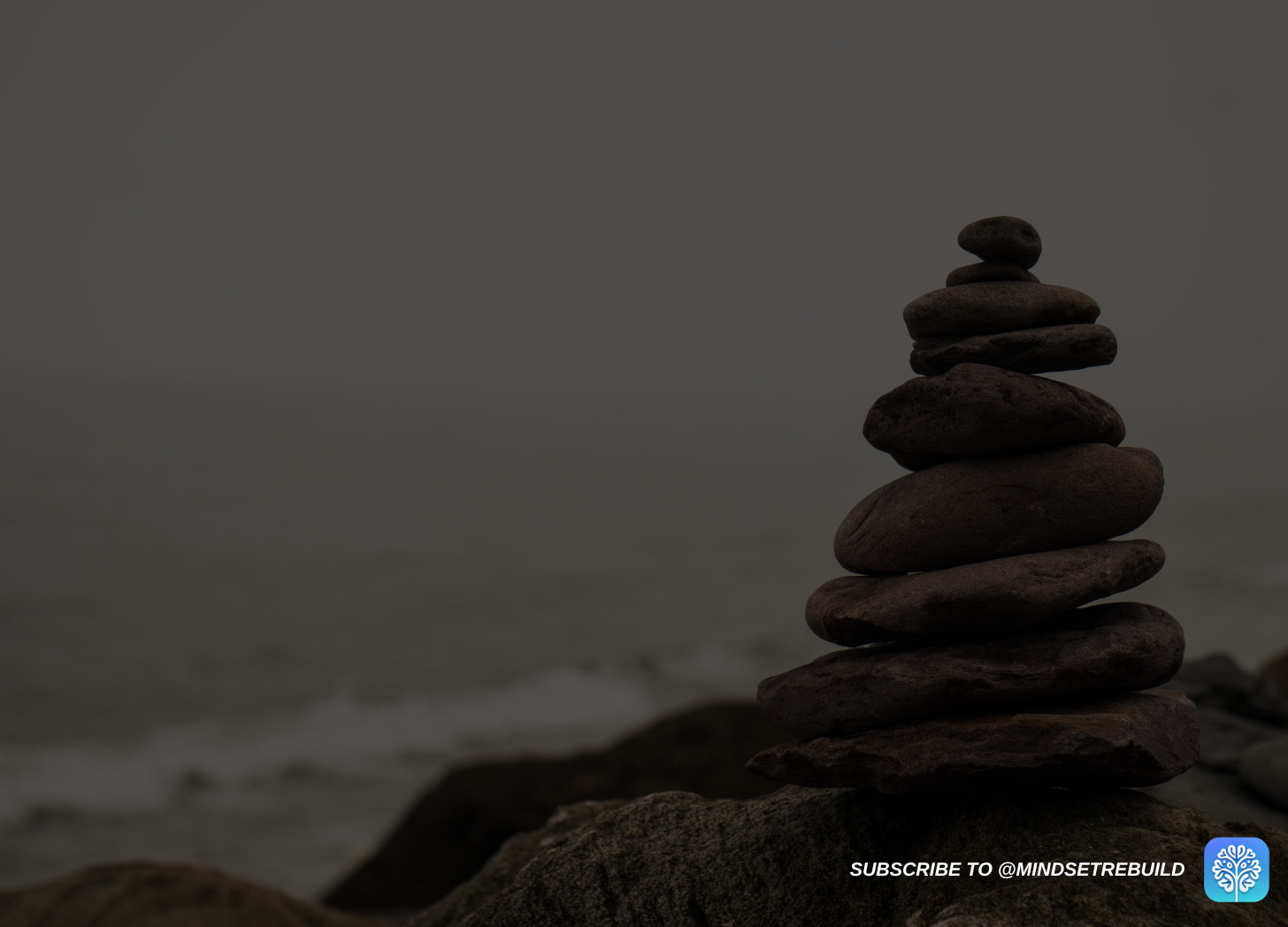Mindset Rebuild: The 10-Minute Mindfulness Hack for Laser Focus
|
Hi, it’s Warren. In today’s issue:
Thought for the Week“Mindfulness isn’t difficult. We just need to remember to do it.” (Sharon Salzberg) This simple reminder is a game-changer. It highlights the real challenge of mindfulness — it’s not the act itself, but remembering to prioritize it in the whirlwind of daily life. As entrepreneurs and creators, we often get caught in the chaos, juggling endless tasks and responsibilities. Taking just 10 minutes a day to pause, breathe, and refocus can be the difference between burnout and breakthrough. This week, let’s commit to showing up for ourselves — even if it’s just for a moment of mindful breathing. Your clarity, focus, and well-being are worth it. Deep Dive: The 10-Minute Mindfulness Hack for Laser Focus
Do you ever feel like your brain is a noisy room full of shouting voices? Emails, deadlines, and a million little distractions — everything demanding your attention at once. You try to focus, but it’s like juggling chainsaws: one wrong move and everything comes crashing down. Sound familiar? That used to be me. My brain was so scattered that I couldn’t even finish a cup of coffee without forgetting where I left it. Then I discovered something that changed the game — a 10-minute mindfulness hack that brings instant clarity. It’s not a magic pill, but it’s damn close. And the best part? Anyone can do it. Why Our Brains Are a Hot MessLet’s get real: we live in a world designed to hijack our attention. Social media, endless notifications, even our to-do lists — they’re all fighting to control our mental bandwidth. Your brain’s prefrontal cortex, the part responsible for focus and decision-making, gets overwhelmed. It’s like trying to download a movie on dial-up internet. Good luck getting anything done. And here’s the kicker: every time we multitask, we train our brains to stay scattered. Studies show it takes about 23 minutes to refocus after a distraction. Think about that. Every “quick” scroll through Instagram costs you nearly half an hour of productivity. No wonder we feel so burned out. Enter Mindfulness: The Reset Button for Your BrainMindfulness is like decluttering your mental desk. Instead of battling the noise, you learn to notice it, let it pass, and bring your focus back to what matters. It’s not about “clearing your mind” (spoiler: that’s impossible). It’s about creating space between you and the chaos. Here’s the science: mindfulness activates your brain’s anterior cingulate cortex and prefrontal cortex—the same areas responsible for focus and self-control. At the same time, it dials down your amygdala, the part of your brain that triggers stress and anxiety. In just 10 minutes, you can shift from frantic to focused. It’s like upgrading your mental operating system. How to Practice the 10-Minute Mindfulness HackYou don’t need candles, crystals, or a guru to get started. Here’s the bare-bones version:
The Unexpected Benefits of MindfulnessAt first, I thought mindfulness was just about focus. But the benefits go deeper than that:
The Power of ConsistencyOne session won’t magically fix your life. But like any habit, the real magic is in showing up consistently. When I started, 10 minutes felt like forever. My brain would rebel, throwing random thoughts at me like, Did I leave the stove on? or What’s Elon Musk up to these days? But I stuck with it. After a week, I noticed I could refocus faster. After a month, I was calmer under pressure. Now, mindfulness is my daily reset button. It’s the first thing I do when my brain feels like a Windows 98 computer stuck on the blue screen of death. Why Most People Fail (And How You Won’t)Let’s address the elephant in the room: mindfulness sounds too simple to work. That’s why most people try it once, don’t feel “enlightened,” and give up. But here’s the truth — it’s not about instant results. It’s about building a muscle. Think of mindfulness as fitness for your brain. The first time you hit the gym, you’re not going to bench press 200 pounds. You start small, build strength, and eventually see results. The same goes for mindfulness. The key is consistency, not perfection. Take It to the Next LevelOnce you’ve nailed the basics, here are some advanced tips:
What Happens When You Don’t Make Time?Let’s flip the script. What’s the cost of ignoring your mental health? Burnout, chronic stress, shitty decisions, and a constant feeling of being overwhelmed. Is that the life you want? I didn’t think so. Mindfulness isn’t just a self-care trend — it’s a survival tool in a chaotic world. It’s about taking control of your attention instead of letting the world steal it. And it starts with just 10 minutes. Your MoveHere’s my challenge: try this for one week. Ten minutes a day, no excuses. See what happens. I guarantee you’ll feel the difference. And if you do? Stick with it. Your future self will thank you. Weekly RecapIn Case You Missed It: Unplugged—The Power of Digital Detox for Mental Clarity Know the Habits of a Weak Mind Building Confidence Through Small Wins Taming Your Inner Critic: How to Silence Self-Doubt Why Positive Thinking Isn’t Enough: Advanced Strategies for Sustainable Change Wrapping UpHere’s what you’ve learned today:
Action Step: Set a timer for 10 minutes today. Find a quiet spot, focus on your breath, and let your thoughts come and go. Then reflect: How does your mind feel afterward? Bonus points if you repeat this every day for a week. Small steps lead to big changes. Take care, P.S.Was this useful?If so, share it with someone who needs a mental reset. And if you’re ready for more tips on mindfulness, productivity, and personal growth, subscribe to Mindset Rebuild. Let’s navigate this crazy world together. |
